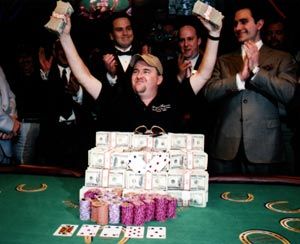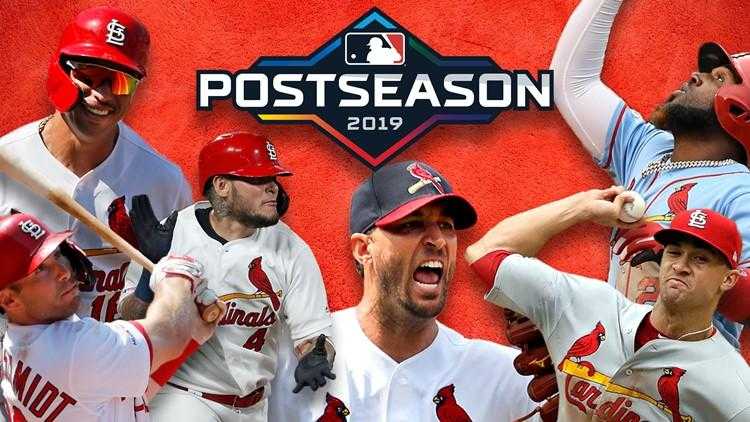On October 26th, Presidential candidate Andrew Yang tweeted his support for the legalization of online poker, becoming the first to do so in this election cycle. Leading online poker site PokerStars is scheduled to launch its’ platform in Pennsylvania on November 4th, thus making it the 4th state to regulate the game for online use. The online poker community has suffered since “Black Friday” – the April day in 2011 when the U.S. Department of Justice unsealed indictments against the three main American-based poker sites; PokerStars, Full Tilt Poker, and Absolute Poker.
Those sites quickly quit offering games to U.S. players while freezing accounts, essentially locking players out of their money. Repayment did come – quickly for PokerStars players, slower and with more controversy from Full Tilt – and online poker has yet to recover.
State of the Game Prior to April 15, 2011
The poker boom is usually traced back to Chris Moneymaker’s underdog win in the 2003 World Series of Poker Main Event. With his name straight out of central casting and the story of winning an $86 online satellite to earn his way into the event, Moneymaker bested a field of 839 to win $2.5 million. Furthering the legend, ESPN’s edit of the event over multiple one hour episodes pitted Moneymaker against villainous tropes including the cigarette chomping gambler Sam Farha and caterpillar-mustached Iranian Amir Vahedi, all in the presence of his doting father. Propelling the narrative was the use of hole-card cameras to show rapt viewers every suck out and bluff along the way.

Off the success of the 2003 Main Event, television, casino and online poker all exploded in popularity. From cult-status movie “Rounders” to the World Poker Tour and multiple celebrity-centered games, poker was featured on many cable channels weekly. The Main Event saw entries catapult to 2,576 the year after Moneymaker to 5,619 in 2005, to a record 8,773 in 2006. Vegas and Atlantic City saw a rise in cash game play, many establishments building posh new poker rooms or renovating smoke-stained relics. But online poker was where the real “Moneymaker Effect” took shape.
Money for Nothing
Most homes in America had an internet connection. Swarms of young (mostly) men had the mindset that they could beat the game and become the next phenom. The image of poker player transformed from drawling, cowboy hat wearing road warrior playing in dark, stale back rooms under the constant threat of ambush to jargon-spouting, pajama wearing internet whiz kid playing on ten screens simultaneously in his dorm room.
The first real money poker website was coined Planet Poker and was endorsed by noted poker theorist Mike Caro. Soon followed alliterative copycats Paradise Poker and Party Poker, as well as PokerStars, Ultimate Bet and other pop-up operations that came and went seemingly unnoticed. The first online tournaments were introduced and Party Poker, who dominated the market until 2006, held the first million dollar guarantee tournament. If you’re reading this chances are you remember the advertising blitz Party Poker unleashed to cement its’ status as top dog. At its’ peak, Party Poker had 41% of all online poker traffic funneling through its’ software.
Launching around the same time as Party Poker, PokerStars gradually developed a following, using user-friendly software and myriad game choices to satisfy customers. The real break for PokerStars came through its’ offering of satellites to larger tournaments. This enticed low stakes players into trying their luck at a bigger score, including a Tennessee accountant named Chris Moneymaker. Thirty-six other internet gamblers won entry into the 2003 Main Event via PokerStars. Riding the wave of good juju from Moneymaker, copious ad buys targeting young males, and a sleepy government as yet uninterested in the business, PokerStars and the online game in general enjoyed a gold rush.

2004 saw the launch of Full Tilt Poker to tap into the stream of seemingly endless revenue. Full Tilt’s angle was catering to poker players by using pro players as pseudo-runway models. Pros were gobbled up by major sites in the escalating war for market share. Logos and patches permeated all televised poker, making it akin to a NASCAR race. “Well, Lon, the cards ran pretty good today. I really hafta thank Absolute Poker for making this possible”. Millions of dollars were changing hands every day.
The Sleeping Giant Awakens
Somewhere along the line, as (some) players, pros, and definitely site owners raked in money, the U.S. government realized someone was profiting and it wasn’t them. In October 2006, the Unlawful Internet Gaming Enforcement Act (UIGEA) was tacked on as a rider to the Safe Ports Act. The UIGEA essentially made it illegal for financial institutions to process payments stemming from online gambling. While focused on banks, the effect on players meant that Johnny from Scranton could no longer use his Wells Fargo card to deposit on PokerStars, he would have to wire money outside the country on an end run to get his fix. All publicly traded sites, like Party Poker, immediately left the U.S. market. This left PokerStars and Full Tilt as the main players and by and large business went on as usual.
Black Friday
Online poker sites that continued under the impression that the Department of Justice wouldn’t enforce the letter of the UIGEA or assumed poker did not apply kept chugging along. Then April 15th happened. On that Friday the government seized the domain names of PokerStars, Full Tilt Poker, Ultimate Bet and Absolute Poker. Player accounts were frozen and all told 76 bank accounts across 14 countries were closed. After settlement PokerStars began to pay back players who had active accounts. However Full Tilt was charged with cheating its’ players by refusing payouts while reimbursing contracted pros and owners, including WSOP bracelet winner Howard Lederer and 2000 Main Event champion Chris Ferguson. Eventually PokerStars agreed to purchase Full Tilt while paying penalties to the Department of Justice, thus dismissing civil complaints.

Fallout from Black Friday went far beyond players. The glut of poker programming on TV came to a screeching halt, and with it multi-million dollar contracts with partners such as ESPN and NBC. Many profitable players were forced to find other sources of income or relocate to countries where their profession was legal. Even 8 ½ years later, many players with accounts seized on Black Friday have yet to be paid.
Perhaps the biggest blemish is to the online game itself. Online purveyors have trickled back into the market, most notably Bovada and Global Poker, which uses a sweepstakes form of payment to remain in a legal grey area. Online poker itself has never been illegal, only the processing of deposits and payouts.
Current Landscape
Poker remains on the fringes of the sports conversation amid the skill vs. luck debate. But the live game itself continues to show growth in brick and mortar venues here in the U.S. and across the world. This year’s World Series of Poker saw a record 90 bracelet events. Over 187,000 buy ins were reported, with players competing for more than $293 million in payouts. Poker is back in a big way as a spectator event. PokerGo offers a streaming platform with over 100 days of live poker and extensive archives. Poker is undoubtedly bigger across the world in 2019, as evidenced partially by the fact that 22 countries had bracelet winners this year. So what can be done, if anything, to bring back the online platform?
Bring it Back?
Firstly, should online poker be legal at all? Attitudes regarding gambling in general are trending toward the progressive side. There are now 22 states in which commercial casinos have been legalized. With the addition of Indiana in September, there are now 13 states that allow sports betting. Four states regulate online poker, the aforementioned Pennsylvania, Nevada, New Jersey and Delaware. West Virginia has passed legislation but has not put infrastructure in place. By mutual agreement players can compete across states, although the WSOP/888 software is the only option in all three states currently.
The arguments against legalization are similar to traditional anti-gambling rationale. Opponents cite risks of addiction and the ease by which credit and debit cards can process transactions, thereby increasing chances of financial jeopardy. In 2011 the Justice Department declared that the Wire Act of 1961 could be interpreted to only refer to sports betting and not games of skill, thereby absolving regulated poker. The Trump administration, however, reversed that opinion in January 2019. At any rate, online poker in approved states has not been challenged yet, and sites running nationwide continue to operate in that grey area. Poker in general certainly has the following to sustain the online game. If more states join the legalization trend, the merged player pool may resemble something close to pre-Black Friday levels. Regulation would provide immense tax revenue for states and insurance against fraud and potential excess. It is unlikely a federal bill will be introduced in the current political climate. Each state will chart its own course, similar to the question of legalized marijuana. Unless, of course, Andrew Yang becomes president.
Join the discussion at Belly Up Sports. Let me know what you think on Twitter.






